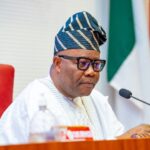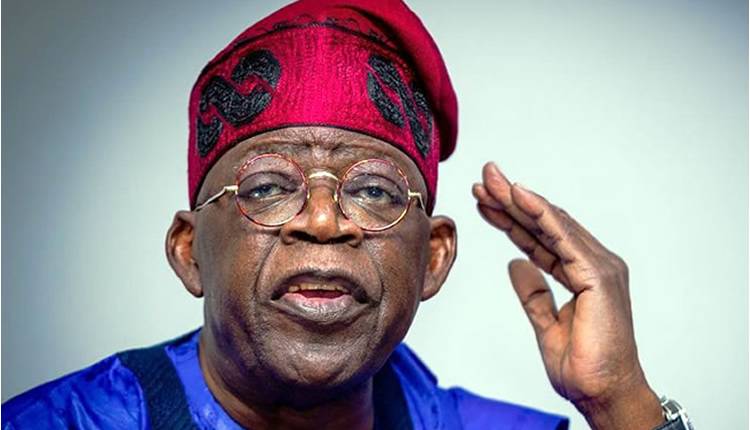By Funmilayo Adeyemi
President Bola Tinubu on assumption into office on May 29, 2023 reiterated the commitment of his administration to education for human capital development in the country.
Tinubu gave approval for a comprehensive set of policies aimed at overhauling Nigeria’s education sector which focused on four initiatives — Data Repository, Out-of-School Children, Teacher Training and Development and Skill Development and Acquisition.
Educationists have recalled that as laudable as the roadmap suggests, the number of out-of-school children is currently a subject of controversy.
The United Nations Children Fund (UNICEF) and the United Nations Education and Scientific Organisation (UNESCO) put the figure at 18.5 million and 20 million respectively but the government insists the figure is less.
Irrespective of the controversy, Tinubu urged the Federal Ministry of Education and all stakeholders in the sector to work together to see this vision accomplished.
The ministry began by developing a 2024-2027 Education Roadmap as well as the Ministerial Deliverables entitled “Education for Renewed Hope’’.
The roadmap contains practical, problem-solving and realistic approaches across 13 thematic areas delineated to allow for concurrent implementation as parts of a synergistic whole.
The roadmap underpins the ministerial deliverables, a compact signed between the management of the Federal Ministry of Education and the president for which the education ministry would be held accountable.
The roadmap being developed has heavy concentration on the need to have out-of-school children reduced, with the target of increasing school enrolment, transition and completion for learners.
The ministry, through the Adolescent Girls Initiative for Learning and Empowerment (AGILE) project, currently running in 18 states, has enrolled more than three million girls in secondary education.
Also, through the project, more than 5,000 classrooms have been constructed with 84,567 teaching and learning materials provided to schools in the beneficiary states.
Speaking in an interview, the National Project Coordinator of AGILE, Mrs Amina Haruna, said that AGILE, a World Bank assisted project, was aimed at improving secondary education opportunities for adolescent girls in 18 participating states.
Haruna said that the project had also benefitted millions of students with life skills and digital skills.
According to her, this project is aligned with the major focus of the ministry at the moment which is to strengthen education at the basic and secondary education level.
She said that the project had not only brought academic programmes to the students but also included hands on skills to make the students self-reliant.
“The boys are not left out as they also benefit from this project through our visibility in the mixed schools.
“The only thing the boys are not enjoying in this project is the cash incentives, any other thing is enjoyed by both the boys and girls,’’ she said.
Haruna said that the project had the components for looking at the challenges students faced in going to school such as proximity, WASH facilities and environment conducive for quality learning and teaching and also acquiring skills.
“From all the components, we started with renovations, and we worked on what would give a good shape to the school and by the time girls start enrolling, they are fully accommodated.
“Then, we look at infrastructure, bringing enough facilities that the children can use and also for their teachers.
“A communication campaign is also provided to enlighten and talk to the parents, traditional rulers about the importance of education.
“We are also looking at a session where we can teach them how to build their confidence and talk to them about the reproductive system so that they can understand what they should expect when they are growing up,’’ she said.
She added that the project had provided the students with digital literacy and conditional cash transfer as a financial incentives given to beneficiaries and their caregivers to support their education.
“During this mission, we have touched the lives of 3,143,497 people; we also have 1,664,170 girls benefiting from the direct intervention of this project.
“We have 1,155,469 girls enrolled in junior and senior secondary school. There’s also a 69 per cent completion rate in senior secondary school.
“We have renovated more than 5,238 junior secondary classrooms and 6,134 classrooms have been renovated for the senior secondary school.
“There are more than 537 separate toilet facilities made for girls in senior secondary schools. In over all, we have touched about 13,663,478 community members,’’ Haruna said.
She further said more than 568 schools were running digital literacy programmes, noting that a new component of the project called second chance had been introduced.
According to her, each of the states has identified centres where each girl can have literacy and skills so that they will be independent and also contribute to the economy of the country.
The national coordinator explained that with the success stories of the project, the number of out-of-school children would be reduced drastically by the end of this administration.
Corroborating this, the Minister of Education, Prof. Tahir Mamman at a retreat on implementation of Ministerial Deliverables of the Education for Renewed Hope held in Akwa Ibom, emphasised the need to reduce the out-of-school number.
Mamman said there was need to develop the teacher’s skills that would strengthen and prepare them to teach the children the identified skills needed for the 21st Century knowledge-driven economy.
“Suffice it to say that it is an embarrassment that Nigeria is continually associated with the highest number of out-of-school children in the world.
“I would not want to bother you with the number of out-of-school children in the country. We would be paying particular attention to this unacceptable phenomenon.
“And in line with President Bola Tinubu’s commitment, we will work towards returning 15 million out-of-school children back to the classrooms by the year 2027.
“We will re-invigorate our focus on basic education, including ensuring the harmonisation and coordination of resources and activities among all tiers of government and development partners.
“We have, therefore, begun operationalising the establishment of the National Commission for Almajiri and Out-of-School Children and approved a policy on Early Child Care Development Education.
“We have begun engagement with state governments on removing bottlenecks that negatively impacted their ability to optimally utilise the Universal Basic Education Funds,’’ he said.
Mamman said that the state governments would fulfill jointly agreed counterpart obligations on efficient programme execution and achievement of results.
He said that a national policy on senior secondary and re-entry guidelines for adolescent girls who dropped out of school prematurely had also been developed and adopted.
He said tht the policy was to advance the government’s interventions of returning more Nigerian children back to school.
“To do this, we are placing a high premium on foundational and basic education and strengthening integration of existing non-formal schools into formal education systems.
“We are scaling-up adult literacy and non-formal education interventions, increasing opportunities for girl-child education and forging partnerships with all tiers of government as well as our development partners,’’ he said.
The Federal Government has also put in place upgrading of schools across the country with the aim of providing environment conducive for learning and teaching.
The Executive Secretary, National Senior Secondary Education Commission, Dr Iyela Ajayi, said that the upgrading of 50 selected senior secondary schools across the country had begun.
Ajayi explained that federal government colleges are now undergoing renovations in order to give the schools a face lift.
He added that President Bola Tinubu placed high priority in the development of the education sector, hence evident in the budget allocation to the sector in the 2024 Appropriation Act.
“Upgrade of the 50 selected senior secondary schools across the nation, which was captured in the 2024 budget, is a clear testimony of this administration’s commitment to the development of senior secondary education on the country,’’ he said.
In furtherance to this and in a renewed move to enhance sustainable growth in education, the Federal Government has also concluded plans to embark on 13 new infrastructure projects at the National Mass Literacy and Adult Education Commission (NMEC), Kano Centre, through Public/Private Partnership.
The Minister of State for Education, Dr Yusuf Sununu, noted that this was to kick-start the proposed land-swap deal for the development of critical infrastructure in Kano.
According to him, the public private partnership project would mark a turning point in literacy education of adults across the country.
He regretted that it was unfortunate that Nigeria still had a significant number of adults who are either illiterate or have limited literacy skills.
“This is another milestone as a progress in the ministry where we are having it with private public partnership and this is also in the eight point agenda of the President Bola Tinubu, ’’ he said.
The minister said that the 13 new infrastructure projects would include semi-detached two and three bedroom bungalows, state-of-the-art classrooms, clinic, library, hostels, a lecture theatre and recreational facilities, among others that were hitherto lacking.
It is obvious that the government is not resting on its oars to take the education sector out of the woods with all these laudable policies.
Needless to say that with proper implementation, all these measures and policies put in place; the country will be on its way to belong to the committee of nations that boast of zero out-of-school children with a well-trained, skilled and equipped teaching staff members.(NANFeatures)












